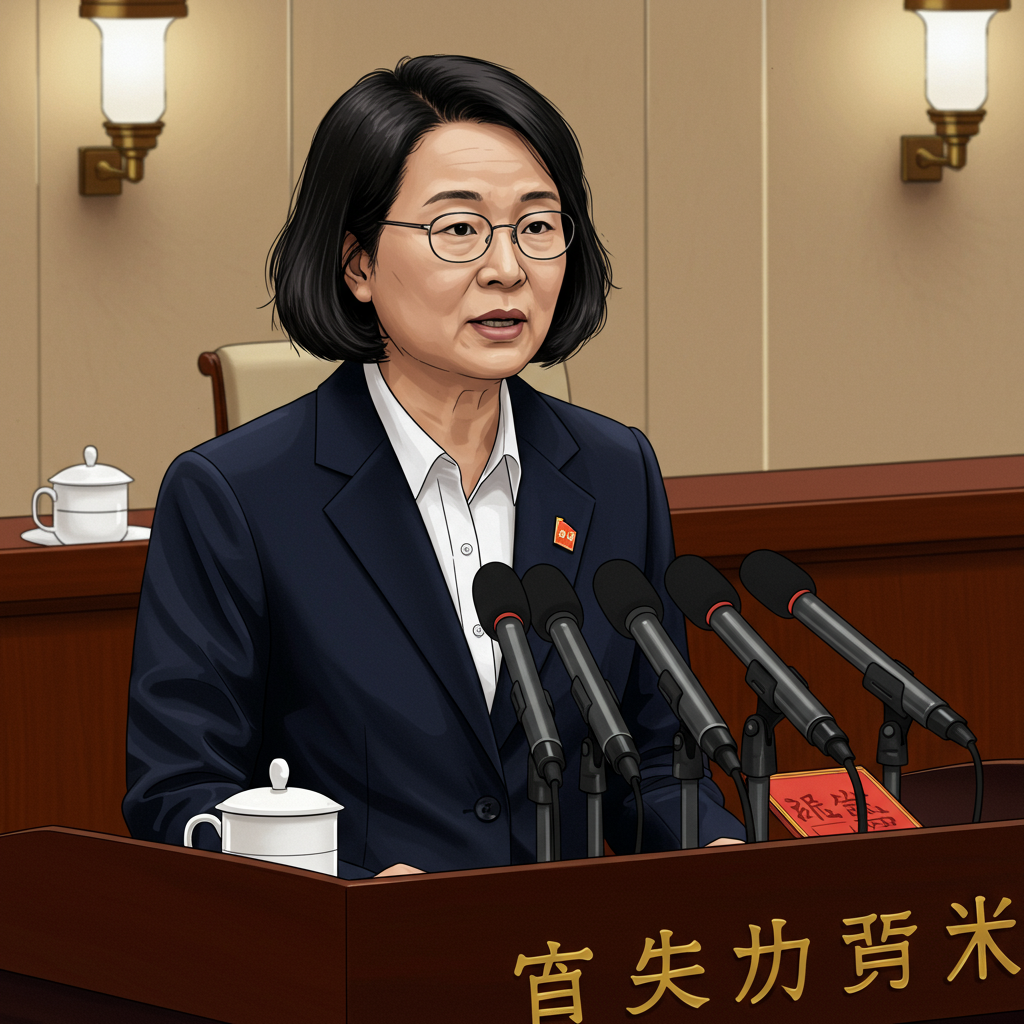Understanding Beijing’s latest diplomatic pronouncements offers vital insights into china‘s posture on the global stage. During a routine press conference on July 3, 2025, Foreign Ministry Spokesperson Mao Ning addressed critical international subjects, revealing china’s perspectives on pivotal relationships and unfolding challenges. These remarks provide a current snapshot of Beijing’s strategic calculus amid a complex world shaped by shifting economic landscapes and persistent geopolitical tensions. Analyzing these statements is essential for anyone tracking China’s foreign policy trajectory and its interactions with major global actors. This analysis distills the core messages from Beijing, providing clarity on the nation’s approach to navigating today’s intricate international dynamics.
The briefing covered substantial ground, ranging from top-level diplomatic exchanges with European partners to unwavering positions on sovereignty matters and responses to international allegations. Comprehending these points is crucial for gaining a nuanced understanding of China’s engagement strategy.
Charting the Future: China-EU Relations at a Crossroads
A central focus of the press conference was Foreign Minister Wang Yi’s recent significant visit to Europe. This trip occurred at a crucial juncture, coinciding with intensified economic and trade discussions between China and the European Union. Against a backdrop of expressed concerns from the EU regarding various facets of bilateral relations, Minister Wang Yi’s engagements aimed to reinforce the partnership and address potential friction points.
During his time in Brussels, Minister Wang held important meetings with key EU and Belgian officials. These included discussions with President of the European Council António Costa and President of the European Commission Ursula von der Leyen. A critical component was the 13th round of the China-EU High-Level Strategic Dialogue, co-chaired with High Representative for Foreign Affairs and Security Policy Kaja Kallas. Further meetings involved Belgian Prime Minister Bart De Wever and Deputy Prime Minister and Minister of Foreign Affairs, European Affairs and Development Cooperation Maxime Prévot.
Foreign Minister Wang Yi highlighted the symbolic importance of the year, marking the 50th anniversary of China-EU diplomatic relations. He described this milestone as crucial for reflecting on past achievements and collaboratively planning for the future. China intends to review valuable experiences and key lessons learned over the past five decades to outline a clear blueprint for dialogue and cooperation over the next 50 years. This effort aims to project a clear and positive message about the relationship’s potential trajectory.
China articulated its readiness to collaborate with the EU, viewing each other as essential partners. Key areas for deeper cooperation include economic and trade ties, increasing mutual openness, effectively managing differences through open consultation, and striving for mutually beneficial outcomes. In a world characterized by volatility and rapid change, both China and the EU, recognized as major global actors, markets, and civilizations, share a profound responsibility. They are called upon to:
Uphold multilateralism and free trade principles.
Safeguard international rules and order.
Promote the peaceful resolution of international disputes.
Jointly tackle global challenges such as climate change.
- Serve collectively as an “anchor of stability” for the world.
- www.cfr.org
- www.atlanticcouncil.org
- carnegieendowment.org
- www.economicsobservatory.com
- www.news.uzh.ch
China expressed its commitment to strengthening communication and coordination with the EU. These efforts are geared towards thorough preparations for the upcoming China-EU Summit, with the goal of imbuing the comprehensive strategic partnership with new substance and opening fresh avenues for collaboration.
The EU side reportedly conveyed its dedication to fostering a stable and constructive relationship with China. They also emphasized a commitment to mutually beneficial economic and trade cooperation. Despite acknowledging existing differences, the EU signaled its readiness to engage with China based on mutual respect, work towards overcoming disagreements, enhance mutual understanding, and jointly address global challenges. The EU looks forward to joint efforts to ensure the next EU-China Summit’s success.
Undercurrents in EU-China Dynamics
Despite the positive framing from both sides during the visit, the broader context of EU-China relations reveals underlying tensions. As noted by external analysis, the relationship has shifted significantly from a primarily trade-focused engagement to one increasingly defined by geopolitics and security concerns. The EU’s 2019 outlook labeling China as a “partner, competitor, and rival” remains relevant, but has been strained by China’s behavior during the pandemic and its “weaponization of interdependencies.”
A key development has been European Commission President Ursula von der Leyen’s framework to “de-risk” the relationship with China. This aims to protect the EU’s economic interests using defensive tools, such as probes into unfair subsidies for Chinese goods like electric vehicles, while continuing trade. This “de-risking” effort, however, faces internal EU divergences, highlighting the challenge of a unified approach amidst national interests and varying levels of reliance on Chinese trade. Some analyses suggest countries like Switzerland prioritize pragmatic economic ties, sometimes leading to a position perceived as “pro-Chinese neutrality.”
Moreover, Europe’s view of China has been increasingly shaped by Beijing’s deepening partnership with Russia, particularly concerning the war in Ukraine. NATO allies see China as a significant enabler of Russia’s war effort, and the EU has even sanctioned Chinese entities for supporting Russia. While China attempts to counter these moves, its efforts have seen limited success across the bloc, despite leveraging influence with certain member states like Hungary. The EU now explicitly recognizes that stability in the Indo-Pacific region, including tensions in the Taiwan Strait, is directly relevant to European security and prosperity, marking a significant shift in perspective.
However, Mao Ning also voiced concerns regarding certain perceptions within the EU. She noted that some individuals appear to cling to a Cold-War mentality, readily accept disinformation, deliberately emphasize disagreements, and consequently possess an inaccurate view of China and its relationship with the EU. Beijing believes this stance is detrimental to China-EU cooperation and ultimately harms the EU’s own interests. China hopes that the EU will adopt a more objective and rational perspective on China. The aspiration is for the EU to implement a more positive and practical China policy, thereby ensuring the healthy and stable growth of China-EU ties.
Countering Espionage Claims: China’s Forceful Rebuttal
The press conference also addressed international security concerns, specifically referencing a warning from Switzerland’s federal intelligence service. The Swiss agency had recently stated that the threat from espionage was significant in the country, identifying China and Russia as posing the greatest risks.
In response to this assertion, Mao Ning offered a clear and forceful denial. She emphasized China’s role in international affairs, stating that the nation is a steadfast force dedicated to peace, development, cooperation, and win-win outcomes. China consistently believes that mutual benefit serves the interests of all peoples globally.
Regarding the specific allegations from Switzerland, Mao Ning characterized the claims of threats stemming from Chinese espionage as being “out of thin air.” She asserted that China itself is a victim of espionage and maintains a firm stance in opposing all such activities. Beijing strongly urged the “relevant party,” implicitly referring to Switzerland, to cease what it views as propagating division and confrontation. China called for an end to the fabrication of lies and the deliberate smearing of others. This firm denial aligns with China’s consistent messaging when faced with accusations of this nature.
Upholding Sovereignty: China’s Stance on Taiwan and US Actions
The sensitive issue of Taiwan also featured prominently during the briefing, prompted by recent legislative actions in the United States. Reports indicated that the U.S. House of Representatives had unanimously passed a measure known as the “Taiwan Non-Discrimination Act.” This act reportedly mandates the U.S. government to support the participation of “China’s Taiwan region” in the International Monetary Fund (IMF). The stated goal was for Taiwan to gain eligibility for economic surveillance, technical assistance, and potential employment opportunities within the IMF structure.
Mao Ning reiterated China’s fundamental and non-negotiable position based on the one-China principle. This principle asserts that there is only one China in the world, that Taiwan is an inseparable part of China’s territory, and that the government of the People’s Republic of China is the sole legitimate government representing the entirety of China.
Based on this principle, Beijing maintains that Taiwan possesses no valid grounds, reasons, or inherent right to join the United Nations or any other international organization whose membership is expressly restricted to sovereign states.
China issued a strong call for the United States to adhere strictly to the one-China principle and the three foundational China-U.S. joint communiqués. Beijing also urged the U.S. to respect international law and the basic norms governing international relations. Specifically, China demanded that the U.S. cease advancing the “so-called Taiwan-related act,” refrain from using the Taiwan question as a means to interfere in China’s internal affairs, and stop sending what China considers incorrect signals to “Taiwan independence” separatist forces. This reflects China’s consistent position against any actions perceived as supporting Taiwan’s independence or its participation in international bodies on a state-like basis.
Taiwan as a Flashpoint
The Taiwan issue remains arguably the most significant potential flashpoint in China-U.S. relations and a key area of concern for Europe and other global partners. While China aims for “peaceful reunification,” it has not ruled out the use of force, especially in response to perceived moves toward formal independence. The U.S. maintains a policy of strategic ambiguity but provides defensive capabilities to Taiwan, actions China views as interference. External analysis highlights that achieving a stable relationship by the mid-2030s relies heavily on establishing a military balance in East Asia and implementing crisis-management arrangements, although deep disagreements over Taiwan complicate this significantly. Reassuring China that the U.S. does not support unilateral Taiwanese independence moves while strengthening Taiwan’s defenses and ally capabilities (like Australia and Japan through AUKUS, or the UK’s “tilt” to the Indo-Pacific which includes engagement in the region) are seen as critical for deterrence and stability. The EU’s increasing willingness to voice concerns over the Taiwan Strait demonstrates the global ripple effect of this issue.
Bolstering Regional Stability: Supporting a Nuclear-Free Zone
Addressing regional security matters, the spokesperson commented on reports concerning the Southeast Asia Nuclear Weapon-Free Zone (SEANWFZ) Treaty. Malaysian state media had reported that China and Russia had agreed to become signatories to this treaty, while the United States was still reviewing it.
Mao Ning confirmed China’s long-standing supportive position regarding the SEANWFZ. As a comprehensive strategic partner and friendly neighbor to ASEAN (Association of Southeast Asian Nations) countries, China firmly supports the establishment of a nuclear-weapon-free zone in Southeast Asia.
She stated that China has consistently reiterated its readiness to be among the first countries to sign the Protocol to the SEANWFZ Treaty. China affirmed its intention to maintain ongoing communication with ASEAN countries to advance this matter. This stance aligns with China’s broader stated commitment to regional peace and stability and demonstrates its willingness to engage with regional security frameworks when they align with its interests.
Trade Dynamics: China’s Perspective on US-Vietnam Deal and Global Trade
Finally, the press conference touched upon international trade dynamics, specifically addressing a reported trade agreement between the United States and Vietnam. According to reports, this agreement included provisions for a 20 percent tariff on Vietnamese exports to the U.S. and a significant 40 percent levy on goods deemed to be transshipped through Vietnam. This latter provision could potentially impact certain Chinese goods being routed via Vietnam.
Commenting on this development, Mao Ning articulated China’s general philosophy for resolving economic and trade disputes. China believes that equal-footed dialogue and consultation are the appropriate and effective means to address such disagreements.
However, Beijing added a crucial caveat regarding the nature of such agreements. China’s position is that relevant trade negotiations and resulting agreements should not be designed or implemented in a way that targets or harms the legitimate interests of any third party. This statement implicitly voiced concerns about potential negative impacts on Chinese trade flows due to the reported transshipment levy in the US-Vietnam deal, highlighting China’s sensitivity to trade measures perceived as circumventing or penalizing its exports.
Broader Trade Landscape
This specific comment comes within a broader context of escalating global trade tensions, particularly between the U.S. and China. The U.S.-China trade relationship has evolved from mutual benefit post-WTO entry to one marked by significant tension, tariffs, and punitive measures. Issues like U.S. job losses (“China Shock”), national security concerns regarding technology, widespread accusations of IP theft and forced technology transfer, China’s extensive state subsidies, and past currency manipulation allegations have fueled this friction. Despite a “Phase One” agreement, core concerns remain unresolved, and the U.S. has even increased tariffs on specific sectors and implemented export controls on sensitive technologies.
While trade continues, external analysis suggests limits to complete “decoupling” due to deep economic interdependence. However, China’s industrial policy, aiming to absorb export surpluses, and its economic overcapacity leading to vast exports of cheap products, are expected to force other countries, including Europe, to impose further tariffs, increasing global tensions. The UK’s experience, for example, shows relatively limited direct economic benefits from trade with China compared to its main partners, alongside heightened security concerns regarding technology and data. This complex global trade environment underscores China’s sensitivity to measures in third countries, like the US-Vietnam deal, that could impact its own trade flows.
Understanding China’s Global Positioning
The collection of responses provided by Spokesperson Mao Ning offers a snapshot of China’s diplomatic priorities and strategies. From actively engaging with Europe despite economic friction to drawing firm lines on core sovereignty issues like Taiwan, Beijing continues to project a foreign policy that emphasizes both cooperation where interests align and unwavering defense of what it considers its fundamental rights and territory.
Recurring Themes in China’s Diplomacy
Several recurring themes underpin China’s responses. The emphasis on multilateralism, dialogue, and win-win cooperation reflects China’s stated commitment to a specific vision of global governance and economic interaction. Simultaneously, the strong language used regarding Taiwan and espionage allegations underscores Beijing’s resolve to push back against perceived external interference and threats to its national interests. The readiness to support regional initiatives like the SEANWFZ, while maintaining vigilance on trade impacts, illustrates a pragmatic approach balancing regional engagement with national economic concerns. These points collectively paint a picture of a nation actively shaping its role on the global stage through a mix of engagement, assertion, and adherence to its core principles, all while navigating a complex landscape of intensifying competition and evolving partnerships.
Frequently Asked Questions
What did China say about its relations with the European Union?
During the press briefing, China emphasized the 50th anniversary of China-EU diplomatic relations as a key milestone to review the past and plan for the next 50 years. China expressed readiness to deepen cooperation in areas like trade and manage differences through consultation, viewing the EU as a vital partner. Beijing called for joint efforts to uphold multilateralism, address global challenges, and serve as “anchors of stability.” However, the spokesperson also cautioned against what China views as Cold War mentality and disinformation impacting EU perceptions, urging the EU to adopt a more objective view and practical policy.
How did China respond to Swiss espionage claims?
China’s Foreign Ministry spokesperson Mao Ning firmly denied recent allegations from Switzerland that identified China as a significant espionage threat. She characterized these claims as groundless and asserted that China itself is a victim of espionage, which it strongly opposes. China urged Switzerland to stop fabricating lies and smearing others, emphasizing China’s commitment to peace, development, and win-win cooperation internationally.
What is China’s position on Taiwan joining international bodies?
China maintains a strict stance based on the one-China principle, which states Taiwan is an inseparable part of China and the PRC is the sole legitimate government. Consequently, Beijing asserts that Taiwan has no basis or right to join international organizations whose membership is restricted to sovereign states, including the United Nations or the International Monetary Fund. China reiterated this position in response to a US legislative measure supporting Taiwan’s participation in the IMF.
Conclusion: Decoding Beijing’s Diplomatic Message
The July 3rd press conference offered a clear window into China’s current foreign policy posture. It highlighted Beijing’s commitment to engaging key partners like the EU, framing the relationship positively despite underlying tensions related to trade, security, and differing values. Simultaneously, it underscored China’s unwavering defense of its core national interests, particularly regarding Taiwan’s sovereignty and forceful denials of espionage allegations. China’s support for regional initiatives like the SEANWFZ and its cautious view on international trade agreements that could impact its own exports further illustrate a pragmatic approach balancing regional engagement with national economic concerns. As global dynamics continue to evolve, analyzing these regular briefings from the Foreign Ministry remains essential for understanding China’s intentions and actions on the world stage, showcasing Beijing’s ongoing efforts to champion its vision for a stable, cooperative, yet fiercely sovereign international order amidst increasing global complexity and competition.



